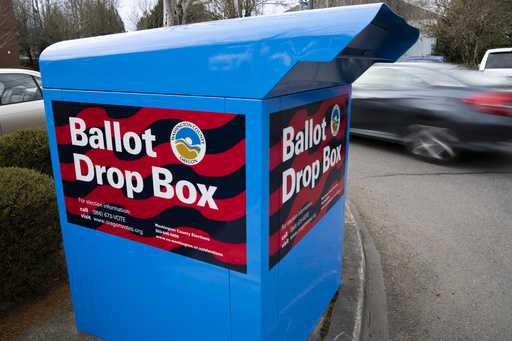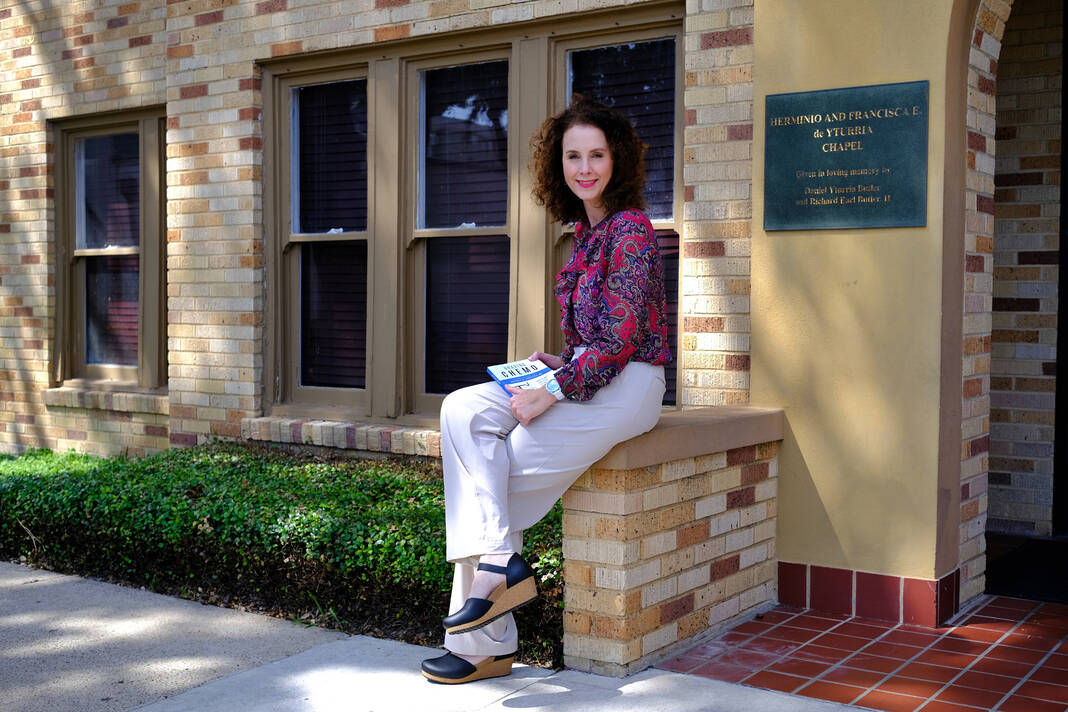For those of a certain age, every election season brings on new rounds of old accusations as candidates seek to diminish their opponents or to land a blow to their rivals’ campaigns.
Some of these clams are blatantly false, some dubious, some fatuous, and some perhaps, approach reality. One of the most popular, typically deployed by those on the political right against their more liberal opponents, is to label their rival a “Socialist.”
The 2024 election season has been no different. Candidate Trump and his surrogates have spared no opportunity to attempt to portray Vice President Kamala Harris as an extreme leftist, using the “socialist” label at every conceivable opportunity and on occasion trotting out “Marxist” to add weight to their claims. The same is true of Colin Allred’s drive to unseat Ted Cruz and Michelle Vallejo’s challenge to Monic De La Cruz. When in doubt, tar them as a “Socialist.”
In each case (and in many others) the Republican candidate has worked tirelessly to tie the Socialist label to their opponent. There is a good reason to do so. Whether the claim is true or not, historically it has been effective. It still is, particularly among the Latino community where many of Cuban or Venezuelan descent have traumatic memories of the Castro, Chavez, and Maduro regimes. (BBC) They and other Republican voters have taken the campaigns at their word and adopted the campaigns’ claims as gospel.
This leads to an obvious question, however; ARE Ms. Harris, Mr. Allred, and Ms. Vallejo actually socialists? Do they promote socialist policies? Are their campaign messages “socialist?” To answer these questions, I am going to have to lead you out into the weeds a bit. First, we’ll need understand the definition of what a “socialist” is, and then we’ll examine Ms. Harris’s, Mr. Allred’s and Ms. Vallejo’s rhetoric and policy proposals to see if they fit our definition.
 Dr. James “Jim” Wenzel
Dr. James “Jim” WenzelThe terms “socialism” and “capitalism” belong to a family of terms that go under the broad heading of something called “political economy.” It may seem obvious that this lies at the intersection of politics and economics, but that understates the degree of complication involved. There are a number of moving parts I’ll need to try to fit together to show how this stuff works.
Much of the realm of political economy revolves around the concepts of property and goods. Specifically, who owns what property, who can use it and who benefits from it and who is able to produce and profit from the creation of “goods”. To an economist, a “good” is something of value. It can be tangible, like an article of clothing or a food item or shelter or any one of the millions of other things we require to make our way through life. Or it can be intangible, for example a political or social right.
Where capitalism and socialism diverge is the decision as to who should own which types of property and in whose interest goods should be produced. Many industries require large capital investments in land, equipment, and personnel to start and maintain them. In a capitalist system that investment is made by a private entrepreneur who will raise the money, buy the equipment, and hire the workers to create and operate the enterprise. These three factors, capital (money), equipment, and labor form the core of the “Means of Production.” In return for the creation of these, the capitalist entrepreneur reaps the profits the business produces.
The Socialist sees in this great opportunities for corruption, self-dealing, and abuse. The sources of these problems are rooted in the private ownership of the “means of production” and its relationship to the profit motive. Avarice, as one of humanity’s less savory features, provides the capitalist with many incentives to reduce their expenses and raise their prices. This can happen a number of ways; by misleading consumers, selling substandard products, abusing workers, damaging the environment, or by colluding with other businesses to limit competition and control prices.
One prime tool the Socialist has in their quiver is to simply alter the economic landscape by limiting or, ideally, eliminating the profit motive by eliminating the private ownership of the means of production. Who then should be the owner(s) of the means of production? Our socialist might well argue that since the workers actually produce the goods, they should be the ones reaping the profits. A similar argument could be made for consumers of the firm’s goods being the major beneficiary of the success of the firm. Perhaps an elaborate system of cooperatives could provide an alternative?
Neither of these is easy nor straightforward to implement. The Socialist’s solution is the Government. In a nominal Democracy, the Government is the embodiment of the will of the People. So, for the Socialist, that is who should own the “means of production” – the people, in the guise of the Government. This should not be taken as Socialists calling for government ownership of ALL business or ALL property. That’s for the full-blown Marxists or Communists out there. Many Socialists would restrict government ownership to industries where high barriers to entering the market make it difficult for competitors to gain a foothold. Prime examples would be, telecommunications, energy production and distribution, public transportation, public health, and generally, education.
This public ownership of the means of production is the sine qua non of Socialism. Without that feature we do not have socialism or Socialists. Full Stop. To be a Socialist IS to be in favor of Government ownership, or Nationalization of many to most major industries.
So, let’s look around. Show of hands – who favors the nationalization of telecommunications? The oil companies? The airlines? Not getting many takers, are we? Although I have to admit that airlines and cell phone companies offer no end of irritation whenever I have to deal with them. What about our elected officials? Do we hear any of them calling for the government to take over those major industries? Certainly not from within the two major political parties. Even those who call themselves “democratic socialists” stop miles away from calls for nationalization. What DO we hear? Generally, calls for greater fairness and social justice – things that a majority of Americans favor. At their most extreme they would find themselves classified among what citizens of European countries call “Social Democrats.” Socialists? Marxists? Communists? Not even close.
So, is Kamala Harris a “socialist?” Collin Allred? Michelle Vallejo? In a word – NO! Harris bills herself a “pragmatic capitalist” and I suspect that is as close to truth in advertising as it is possible to get. (It’s a dirty little secret, but not even the Soviet Union was “Communist.” There were a few real Communists left in the Soviet government after the Revolution. Stalin murdered them.)
So, why the rush to label people as Socialist, or Marxist, or Communist? For one thing, they are scary labels. Americans of many generations grew up having it pounded into our heads that Socialism, Marxism, and Communism are BAD. It’s an ideological Rorschach test for American voters. No discussion needed. And no discussion is ever forthcoming. Which brings us to the big reason these labels are tossed around so freely. Very, very few people really know what they mean. Most are still reeling from their experiences in primary and secondary school. These are BAAAAAAAAAAD things. Among elected officials, there are no doubt some who know the truth, but the ones who are so freely tossing the “Socialist” label around have no incentive to be honest with us. They want us scared. That fear makes us much easier to manipulate, and THAT is the name of their game.
Editor’s Note: The above guest column was penned by Dr. James “Jim” Wenzel, a retired Associate Professor of Political Science at the University of Texas Rio Grande Valley. He received his PhD from the University of Houston and before moving to UTPA in 2000 taught at the University of Houston, Rice University, and the University of California, Riverside. His research interests were and are in the areas of Public Law, Constitutional Politics, and Trust in Government.
The post Wenzel: Socialism: Some Straight Talk appeared first on Rio Grande Guardian.
 (2).png)
 2 weeks ago
32
2 weeks ago
32









 English (US)
English (US)